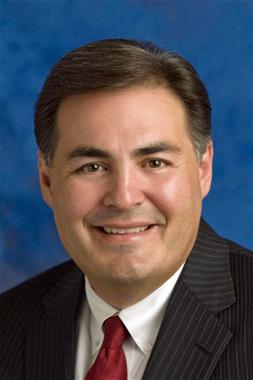
As we all know and have come to experience, our current economy has challenged local governments to think creatively and re-evaluate our daily operations and service offerings. These economic challenges created a sense of urgency to streamline operations and develop cost efficiencies across departments. Addressing organizational inefficiencies is vital to the survival of any agency and its ability to overcome these economic challenges.
In 2009, the city of Phoenix was facing a $277 million budget shortfall. Part of the solution was to establish an Innovation and Efficiency Task Force. The Task Force, comprised of 10 public members and 18 city executives was charged with the responsibility of identifying specific recommendations for efficiency improvements, examining alternative service delivery methods, identifying organizational structure efficiencies, addressing cost recovery and revenue enhancement opportunities, and ensuring the city’s continuing focus on customer service.
It was important to include members from both the public and private sectors to bring together a diverse range of expertise to best serve our city. Richard Rea, a private sector member of the Task Force stated, “The effort of the public members, working in conjunction with city staff and department managers, identified opportunities for savings that enabled the city to continue to provide services to its citizens while under pressure from decreased sales tax revenues. Task force members brought hundreds of years of experience to bear in seeking opportunities for savings”.
A goal of $10 million in Innovation and Efficiency Task Force savings was established as a minimum target for reducing the city’s operating budget for fiscal years 2009-10 and 2010-11. To help accomplish its goals, the Task Force established four work groups:
- Consolidations
- Right Sourcing and Service Cuts
- Revenue Enhancements and Cost Recovery
- Process Improvement and Efficiency
Work groups collaborated with every city department to identify specific improvements and cost savings initiatives. In addition, more than 1,100 ideas were proposed by employees through a dedicated website suggestion program launched in February 2010. During the initial phase of the Task Force, savings through June 2011 totaled $25.1 million, well beyond the $10 million goal. Among the efficiencies identified was the approval to eliminate 546 vacant General Fund positions, which resulted in the smallest workforce the city has experienced in over 40 years. The first phase of the Task Force also led to several consolidations of certain departments and functions resulting in $1.2 million in first-year General Fund savings by streamlining services, flattening organizational hierarchy, and broadening span of control to improve services to residents.
In 2011, the Task Force was charged with identifying additional innovative ways to enhance services, improve processes, and continue to achieve savings and efficiencies throughout the city. During this second phase, the Task Force established seven work groups to assist with identifying and analyzing additional areas of existing city business and services:
- Communications
- Compensation and Benefits
- Customer Service
- Fines and Fees
- Right Sourcing
- Regulatory Review
- Technology and Continuous Improvement
These work groups collaborated with every city department to identify specific improvements and cost savings initiatives. Through this second phase, the city successfully flattened its organizational hierarchy and broadened its employee to supervisor ratio from 5 to 1 in 2010, to 8 to 1 in 2011.
Additionally, Citywide outsourcing levels by fiscal year end 2012 will total approximately $477 million in services in more than 340 service areas. Approval of same day solid waste collection beginning July 2012 will result in a projected net annual savings of $1.3 million due to the reduction of routes, equipment and staff.
To date, the Task Force achieved a total of over $40.5 million in savings, with $16.9 million in General Fund savings and $23.6 million in Non-General Fund savings. These savings and efficiencies are a result of the diligence of staff and our dedicated Innovation and Efficiency Task Force members from both the public and private sectors. In addition to identifying organizational efficiencies, the city fortified its relationship with the public. Mr. Rea added, “The willingness of management and staff of the city of Phoenix to open itself to review and suggestions has dramatically increased the transparency of the city. This willingness enabled the public members to identify opportunities for savings for the city at a time when the need for real savings were desperately needed.” As we continue to move forward, the city of Phoenix is excited to carry these innovations forward and discover more efficiencies that will ultimately improve services to our residents.
Learn more about the city of Phoenix Innovation and Efficiency Task Force or contact the City Manager’s Office at 602-262-6941.
New, Reduced Membership Dues
A new, reduced dues rate is available for CAOs/ACAOs, along with additional discounts for those in smaller communities, has been implemented. Learn more and be sure to join or renew today!
